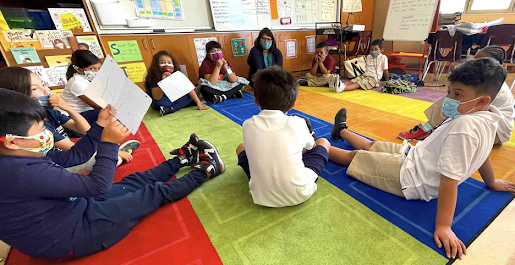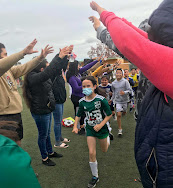 |
| Source: Town Kitchen |
By Sam Piha
The opportunity to work is a powerful experience. I first learned this in observing the work of my wife, Leslie Gravino, as she used employment as an intervention in the mental health system and community college setting. I have seen the power of work also in afterschool settings. We begin this blog with an interview with Leslie Gravino.
Q: How did you discover the power of work?
 |
| Leslie Gravino |
When the catering business grew, we moved to a commercial space in downtown San Francisco. Since the location was central to local businesses, we converted the commercial space into a café and bakery naming it “Expresso Thyself”. We hired professional cooks and bakers and served the financial district with lunch and baked goods for over 5 years. The outcome was a successful business that was able to train and employ many of the Conard House residents, as well as provide vocational counseling to find jobs.
The outcomes from employing adults with psychiatric disabilities revealed themselves every day. The residents gained an income and became more independent. They gained skills that helped them get jobs in the “real world”. When asked about their feelings and thoughts towards working, they often said they felt “normal”, doing what most people do all the time. Feeling included, gaining self-confidence, having a purpose and reaching their highest potential is what I observed as the power of work.
After 18 years in the mental health system, I moved to Las Positas Community College in Livermore, CA where I launched businesses with students and women in the welfare system.
Q: Can you speak to the benefits that come with work?
A: In my opinion, the benefits of work are invaluable because work not only provides an income but a sense of participating in life. Having established several businesses within the mental health system in San Francisco and Las Positas Community College, I learned that working helped people feel “normal”. Residents felt a reprieve from the symptoms of mental illness when they were engaged in work activities. They not only learned the technical/hard skills of a job, but the ability to communicate and socialize (soft skills) with people in a professional manner.
Q: Much of your work has been with adults. Do you think the power of work applies to older youth?
A: I most definitely believe that the building of skills and self-esteem that work provides would benefit older youth. To feel that one is part of a community, serving a cause they believe in, or just earning extra income are invaluable assets earned by participating in work.
According to a report by the Brookings Institution and Child Trends: Pathways to High-Quality Jobs for Young Adults, the report examined employment outcomes for young people of color and those from low-income backgrounds, finding that:
- work-based learning experiences in high school, including internships and apprenticeships, that incorporate positive relationships with adults really helps;
- young people of color and those from low-income backgrounds gain higher-quality jobs by age 30; and
- having a job as a teenager (ages 16 to 18) predicts higher job quality in adulthood and higher wages at age 23.
The report suggests strengthening work-based learning programs in high schools and helping teens and young adults — particularly those without a post-secondary degree — find on-ramps to employment.
MORE ABOUT…
 |
Leslie Gravino, MA, is an Art Therapist and adjunct professor at Las Positas Community College in Livermore, CA. She began her work in the mental health field as a counselor in a residential treatment center for adolescents. She then became a therapist at Conard House in San Francisco, where she started a catering business, a café in downtown San Francisco, that employed adults who had been homeless and were psychiatrically disabled. Ms. Gravino later served as the Work Based Learning Coordinator at Las Positas College, where she launched a computer repair business that trained women receiving welfare to gain skills in technology.
Below are two briefing papers and three webinar recordings you should check out on the topic of youth workforce development in afterschool.
- Engaging Youth as Workers in Afterschool Programs
- Engaging Youth as Workers Within High School Afterschool Programs
- Employing Youth and Workforce Development in Afterschool
- Preparing Youth in Afterschool for the Workforce and Building Your Own Youth Worker Pipeline
- Engaging Youth as Workers in Afterschool






























